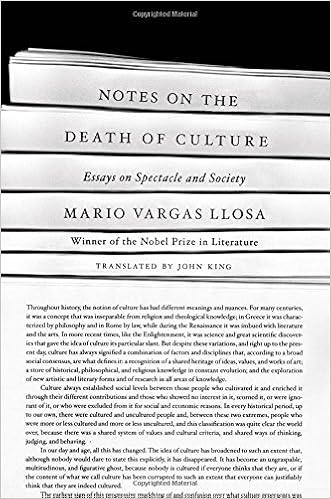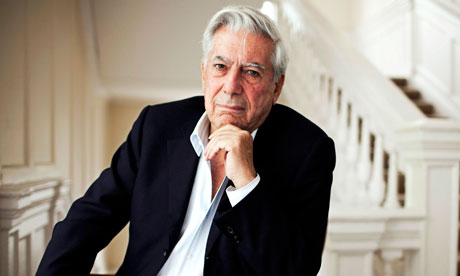Notes on the Death of Culture: Essays on Spectacle and Society is a provocative essay collection on the fast decline of intellectual life, and one that manages the dual feat of shedding light while spreading gloom. As with the artful Freudian wink in the title of Mohsin Hamid’s recent collection Discontent and Its Civilizations, Vargas Llosa’s title is a sly reworking of another seminal title, namely T. S. Eliot’s 1948 essay Notes Towards the Definition of Culture. The six essays that comprise Notes on the Death of Culture can be taken as a response to, or even an update on, Eliot’s argument.
Vargas Llosa has thrown the provocative gauntlet into the face of the modern world. He challenges those who defend undefendable "art & literature" by proclaiming that the modern age does not have culture, so much as spectacle and technology.
I’m a fan of reality; I attempt to understand the world. Therefore, I find this essay collection a magnificent piece of critique on the down slope trail culture has taken. There is not a single statement in that I would argue with for for the first time in years I heard a critical voice long forgotten in the world of publishing.
Vargas Llosa is that long awaited knight on a white horse that if strong enough will be able to shake things up in the art world. For year I have been fighting with my own opinions of the modern art and literature, struggling with self doubt and insecurity. Thinking "I must have gone bonkers for not appreciating it" and than here is that wonderful man who agrees with me and who gave voice to the same taughts that have being fighting to get out under my own pen.
South America's most influential novelist, thinker and revolutionary, writes for the common man a critique of our culture obsessed with itself to the point of self-annihilation. It is accessible, concise, eminently readable, and unforgettable.
Although, very few people with read it, I do believe it is one of the most important books on culture for the last decade.



No comments:
Post a Comment